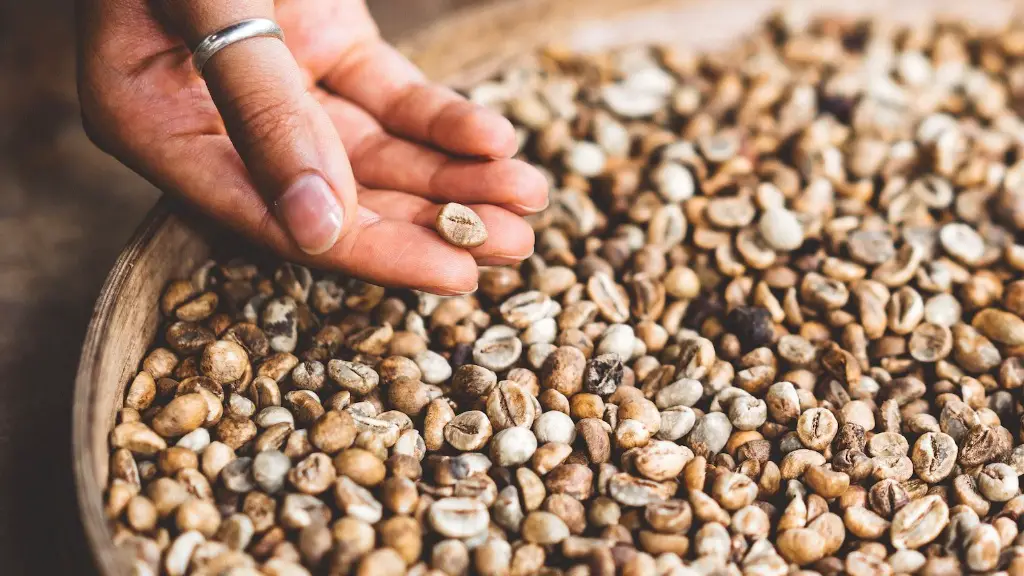Does Drinking Tea and Coffee Count as Water Intake?
A lot of people mistakenly believe that drinking tea and coffee can replace their regular water intake, as both beverages contain high amounts of water. Although this may be true to some extent, in reality, the amount of water contained in tea and coffee is often accompanied by caffeine and other ingredients that make this water intake less effective for the human body. Therefore, it is important to understand the impact of these beverages on our water consumption, and to learn how to maintain a healthy water intake.
Caffeinated drinks, such as tea and coffee, provide the body with fluids, but they don’t hydrate it as much as plain water. In contrast to water, they contain substances that can act as diuretics, which promote urine output, and cause the body to balance the hydration. Furthermore, caffeine can lead to an increase in heart rate and blood pressure and can cause dehydration. Therefore, although tea and coffee can help to meet fluid needs, it is not a substitute for water.
Evidence from scientific studies has found that tea and coffee do not provide the same levels of hydration as water. For example, one study found that among 25 adults, water provided higher hydration levels than tea, even though both contained the same volume of liquid. This effect may be due to the caffeine in tea, which has been found to increase the speed of dehydration.
Experts suggest that if you drink tea and coffee, it is important to also drink plenty of water throughout the day to replenish your hydration levels. It is also important to make sure that your tea and coffee contain no added sugar or other ingredients that could cause dehydration. Furthermore, reducing the amount of caffeine in your tea and coffee can help to reduce the dehydrating effects.
Overall, tea and coffee can be consumed as part of your daily water intake, but it is important to understand their impact on hydration. To ensure that your body remains hydrated, make sure to also drink plenty of plain water and reduce the amount of caffeine and other ingredients in your tea and coffee.
Influence of Tea and Coffee on Hydration
It is essential to understand the impact of tea and coffee on your hydration levels. Caffeine and other ingredients present in tea and coffee can act as diuretics, which result in increased urine output, and cause the body to balance the hydration. Furthermore, caffeine can lead to dehydration and increase your heart rate and blood pressure.
Studies have shown that water provides more hydration than tea and coffee, even though they contain the same amount of liquid. This may be due to the caffeine in tea, which increases the speed of dehydration. To maintain healthy hydration levels, experts suggest drinking plenty of plain water, reducing the amount of caffeine in your drinks, and avoiding added sugar.
The Role of Diet in Water Intake
It is not only important to monitor your liquid intake, but also your food intake. Eating fresh fruits and vegetables can help to increase your water intake, as most fruits and vegetables contain high amounts of water, and can help to keep your body hydrated. Furthermore, eating foods that contain high levels of electrolytes, such as bananas and avocados, can help to replace any lost electrolytes due to excessive sweating.
In addition, drinking herbal teas can be beneficial to hydration levels, since they tend to contain low levels of caffeine and no added sugar. This can help to replenish your body’s fluid levels, while still avoiding the dehydrating effects of caffeinated and sugary beverages.
Hydration Tips
Hydration is essential for our bodies to function properly, and it is essential to know how to keep our bodies adequately hydrated. Here are a few tips to help stay hydrated:
- Drink water throughout the day, not just when thirsty.
- Replace sugary and caffeinated drinks with water.
- Eat plenty of fresh fruits and vegetables.
- Consume electrolyte-rich foods such as bananas and avocados.
- Drink herbal teas.
- Carry a water bottle with you to encourage frequent drinking.
The Health Benefits of Staying Hydrated
Staying hydrated is essential for the body to function at its best. Health benefits include: improved digestion, increased energy levels, boosted immunity, better concentration and alertness, improved skin health, improved metabolism, reduced fatigue and mood swings, and overall better health.
Maintaining adequate hydration also helps to reduce the risk of serious conditions, such as kidney and bladder problems, high blood pressure, heart disease, and stroke. Furthermore, adequate water intake helps our bodies to better absorb essential nutrients and flush out toxins.
Role of Exercise and Water Intake
Regular exercise can help to keep the body healthy, but it is also important to ensure that you are adequately hydrated before starting any form of physical activity. This is because sweat can cause dehydration and put undue stress on the body. It is therefore essential to replenish lost fluids before, during, and after exercise. It is also important to note that sports drinks can contain high levels of sugar and other ingredients that can speed up dehydration, so it is best to drink plain water to replenish your liquids.
It is also important to remember that while it is important to stay hydrated during exercise, it is not advisable to drink more than necessary. Too much water can lead to a dangerous condition called hyponatremia, where the sodium levels in the body become dangerously low.
The Bottom Line
Water intake is an essential part of maintaining a healthy lifestyle. It is important to understand the impact of tea and coffee on hydration, as well as to monitor food and beverage intake, especially when exercising. Furthermore, making sure to drink plenty of water and electrolyte-rich drinks, as well as reducing caffeine and added sugar, can help to keep the body adequately hydrated.



